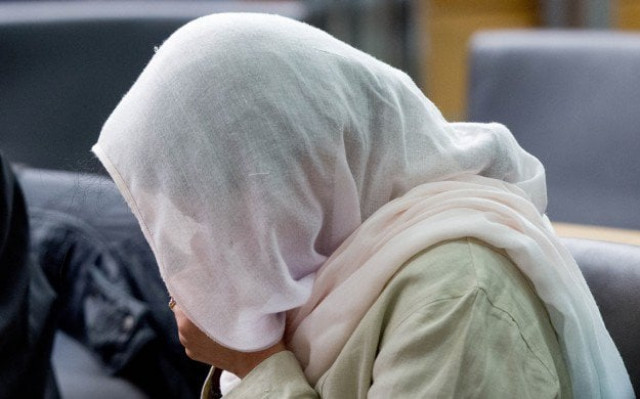Honour killing to become capital offence in Sindh under proposed law
Women development dept moves bills against honour killing, acid attacks in Sindh

Women development dept moves bills against honour killing, acid attacks in Sindh. PHOTO: EXPRESS
Sindh will be the first province in Pakistan to pass a law against honour killing. According to the law, the crime will be considered murder and the station house officer (SHO) concerned will register the case under Section 302 of the Pakistan Penal Code. "Murder under the pretext of honour killing also known as karo-kari is a non-compoundable offence, which cannot be compromised by the victim and the offender," says the law , adding that the government will award capital punishment or life-imprisonment to those found guilty of this offense.
"Honour killing is an ugly truth in our country, especially in Sindh. People kill their daughters, sisters and even mothers under this pretext and go scot-free because the head of the family or other members then pardon the killers,” said former Pakistan Peoples Party (PPP) MPA Humera Alwani. “For the first time, we are making a law that will have no concept of qisas or diyat [blood money] that allow murderers to escape punishment when they are pardoned by their victim's heirs," she said.
Father kills daughter for 'honour' in Badin
Alwani, who is one of the architects of this law, said during the last PPP tenure, the Senate had passed the law but it could not be taken up in the National Assembly following resistance by religious and feudalistic-centric people. The bill finally lapsed.
The special assistant to the chief minister on women development, MPA Irum Khalid, was of the view that now most perpetrators of honour killings confess to the crime before the police, saying they found men or women in ‘objectionable’ circumstances. In this case, the police also give relief to assassins. "Even if the case is registered under Section 302, an application is later moved by culprits requesting the court to make the offense compoundable under Section 345, as both the parties have entered a compromise,” she said.
“Women are treated like lesser mortals. People kill innocent girls under the guise of honour killing to settle their disputes," Khalid said, adding that when the bill is passed, the killers will have no other option but to go to the gallows or spend their entire lives behind bars.
Multan man kills mother for 'honour'
Sources privy to the development told The Express Tribune that a group of women have shared this draft with PPP Chairperson Bilawal Bhutto Zardari. "Bilawal has suggested referring the cases under this law to the Anti-Terrorism Court so that speedy justice can be provided to the victim’s family," said another female PPP MPA.
Acid crimes
Another bill, the Sindh Acid Control and Acid Crime Prevention, has also been drafted by the Ministry of Women Development, which has been sent to the law department for vetting. According to the salient features of the bill, if any person is attacked with acid, monetary relief will be given to the victim to meet their medical and rehabilitation expenses, especially in cases where the medical board recommends treatment at private or foreign medical institutions.
"If any acid victim passes away, the court may, on an application on behalf of the victim's legal heirs, direct the government to provide an appropriate compensation to the victim's legal heirs at par with diyat,” reads the law. It says that an acid victim compensation fund will be established, which will be maintained by the government through the women development department.
‘Honour killing’: Kaghan police arrest five for double murder
The law says that the all health centres owned by the government will provide immediate and free medical treatment to victims and, in case of lack of facilities, will refer the patient to a suitable private hospital. "The government will provide appropriate compensation to the hospital from the compensation fund," the law reads, adding that health centres providing treatment shall be bound to inform the police immediately upon the arrival of an acid victim.
"The SHO must lodge an FIR within 24 hours and the medico legal and investigation officer have to record the statement of the patient and their family immediately on the spot," the law reads, adding that the police will ensure the security of the victim within the hospital by maintaining a record of the visitors. "The SHO shall register the FIR as soon as possible and investigation has to be initiated and concluded within a period of 15 days from the occurrence of the acid-related crime,” it adds. Regarding negligence on the part of the police, the law says that the SHO will be liable for delay in registration of the FIR.
"Any trial in relation to an acid crime before the court shall be conducted on a day-to-day basis and disposed of within a period of 30 days," the law adds. Acid throwing cases will be non-bailable offences and the person involved in acid cases will be punished with an imprisonment of not less than five years.



















COMMENTS
Comments are moderated and generally will be posted if they are on-topic and not abusive.
For more information, please see our Comments FAQ